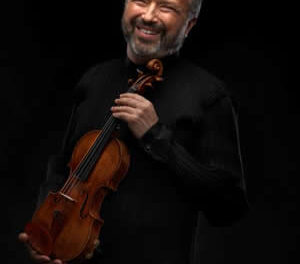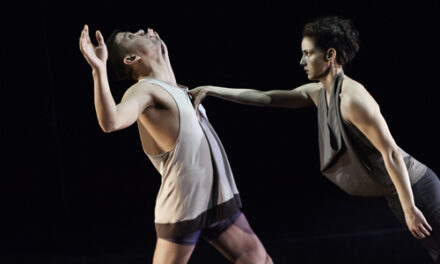As the cultural scene continues to expand in NC, more groups emerge, providing employment for their members and delights for their audiences. One of these made what must have been its official debut in Raleigh on November 6, in Ruggero Piano’s Bösendorfer Hall, thanks to the Raleigh Symphony’s ongoing chamber music series. The occasion was a performance of works for clarinet quartet, mostly, given by CarolinaClarinet, whose members are Brent Smith, Tara Glaspey, Kristin Martin, and Jim Williams. Smith served as spokesperson and leader for the ensemble; readers will recognize at least some of the names, for these people grace many area performing groups. The notion of a clarinet ensemble conjures up memories, not all of them positive, of high school (or earlier) beginners, but these artists are all pros, and squeaks were few and far between. There are of course viol consorts and cello ensembles and saxophone quartets and such, but this is the first time this writer can recall encountering a clarinet quartet. The program was, however, distinguished, and the names of the composers show that the form is at once viable and worthy of serious consideration by music lovers. And several different clarinets – but not every member of the family – were used during the program: “standard” clarinets in A and B Flat and a bass clarinet in B Flat.
The evening began with a short Suite (in three movements) for Four Equal Clarinets by T. Stewart Smith, composed in 1947. It set the mood admirably for the program, and the playing at once demonstrated the excellence of the artists as individuals and as a team. Elliott Carter’s Canonic Suite, also in three movements, dates from 1939 (rev. 1945); people who think this great American master’s music is “difficult” need to hear this piece, which sounds wonderful and is thoroughly accessible despite the structure, founded on mathematical (geometrical) principles. The third offering was the evening’s chief draw, since it is a new work, completed in 2003 but given here, in public, for the first time. The composer is Milton Bliss, whose long service at NCSU has made him something of a living legend, locally. The work is titled “Nefinofo,” and it is a series of short vignettes (as he describes it) for clarinet quartet. In some respects, it contained even greater variety – and was thus even more appealing – than the opening selections, for it involved a bass clarinet, which gave the music a firm floor or foundation over which the other instruments could soar. The style is original but the music embodies hints of folk and other musics, and the sections, played without pauses, are attractively varied. It would have been nice had it been played twice. When the performance ended, Bliss spoke briefly, explaining the title, which consists of the first two letters of the words “Neither Fish nor Fowl….”
The rest of the program seemed somewhat lighter, although the performances themselves were serious and showed high levels of technical proficiency and musical insight. Francis McKay’s “Summer Etchings” embodies a somewhat sentimental tune. The only work by a non-American was André Bloch’s “Denneriana” (1938), which celebrates the first maker of clarinets; it was arranged by Jim Williams for four instruments. Mary van Appledorn’s recent “Gestures,” written for an ensemble at the Naval Academy, speaks in varied “American” voices, as does the Suite by Richard Bowles, who taught two members of CarolinaClarinet.
Brent Smith’s arrangements of Barber’s Adagio and portions of Gershwin’s “Rhapsody in Blue” brought the evening to a close. The former involved guest artists Merida Negrete and Shirley Violand-Jones but it didn’t work as well as one might have hoped, perhaps because there’s not as much opportunity for vibrato in clarinets as there is in strings. In the Gershwin, the six players were joined by pianist and composer Karl Moraschi, who played a brilliant-sounding Estonia grand in lieu of the venue’s customary Bösendorfer Imperial.
There was no intermission, and the program was a bit long for one sit. The program notes left something to be desired – the guest artists’ names were buried in a paragraph about the ensemble but not listed on the program page itself, there were few dates for the works, and bios of several composers were omitted. And it might have helped the audience if the different instruments had been demonstrated and explained. Still, there’s much to celebrate about CarolinaClarinet, so here’s hoping the group returns for a second performance, at least!
The next concert in the RSO’s ongoing chamber music series invovlves the Free Spirits Ensemble and Richard Faith, pianist/composer, on November 20, in the same venue. See our current calendar for details.












